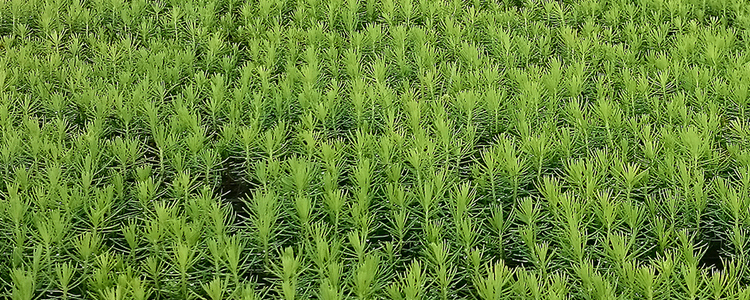Sweden's usage of pesticides on coniferous seedlings declined by 4% 2019 compared to 2018. Instead mechanical treatment is used. This is shown by annual statistics from the Swedish Forest Agency on sold seedlings. The amount sold is about the same as the previous year.
In 2019 381 million seedlings of forest species were delivered, which is the same level as in 2018. The number of delivered seedlings of Scots pine has evened out. Seedlings of Norway spruce and Scots pine together constitute 96% of total number of delivered seedlings. The trend of declining numbers of delivered lodgepole pine seedlings continues, but at a slower rate, and make up for 1.7%. The number of broadleaf seedlings is stable and make up for only 0.6%.
Container-rooted seedlings are the dominating method of production for coniferous species. Scots pine and lodgepole pine are basically only produced as container-rooted seedlings. 2019 the share of Norway spruce seedlings produced as container-rooted was 77%, which is an increase by 9% compared to 2018. Most other coniferous species and broadleaves are produced as bare-rooted seedlings. Only a very small share of coniferous seedlings was produced as transplanted container-rooted seedlings.
Seed propagation was the totally dominating method of propagation of coniferous seedlings 2019. The share of vegetatively propagated coniferous seedlings was negligible.
80% of delivered seedlings in 2019 originate from Swedish seed-orchards, which is an increase compared to 2018. Seedlings of Scots pine almost solely (99%) originate from Swedish seed-orchards. The share of Norway spruce seedlings originating from Swedish seed-orchards increased to 67% in 2019.
